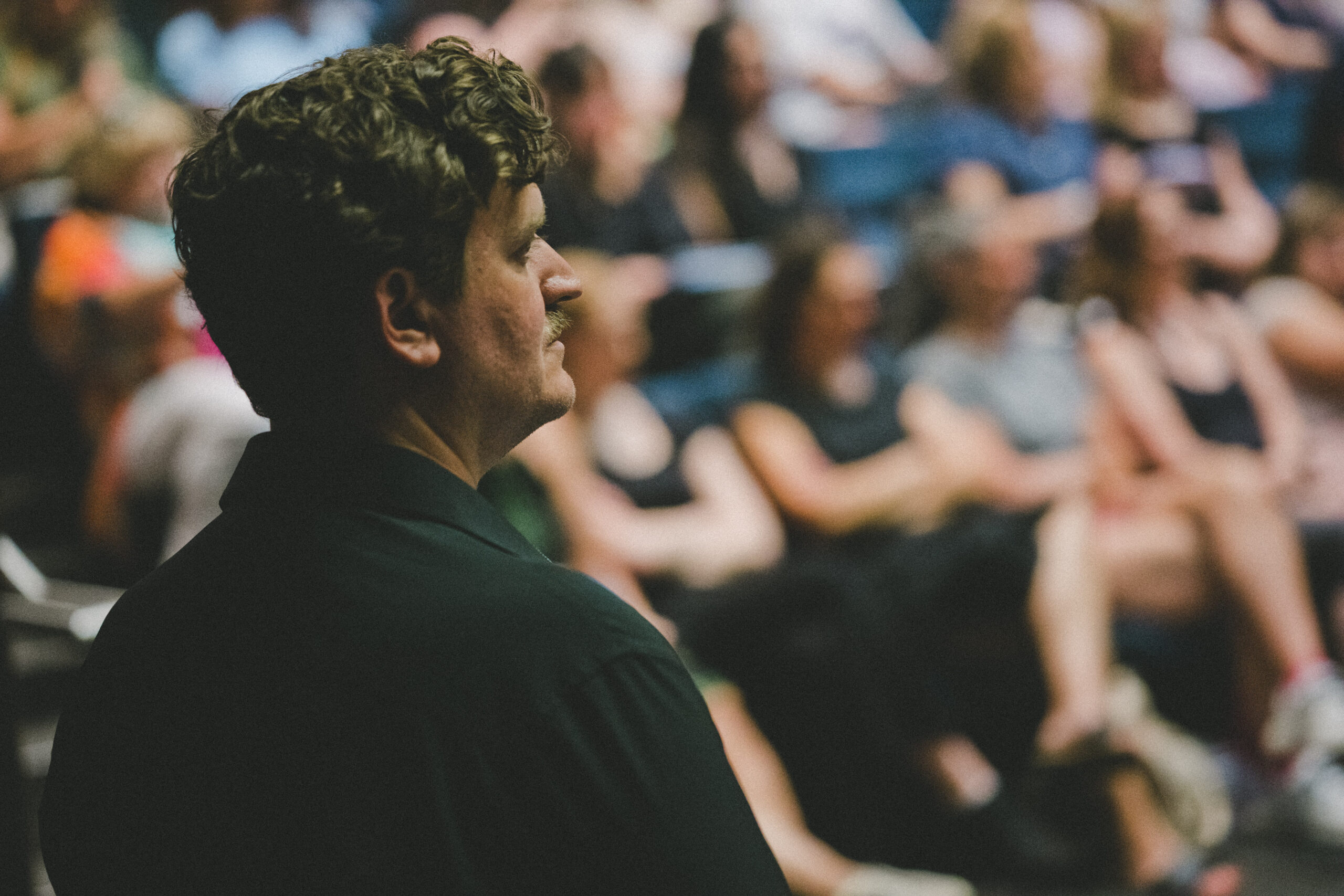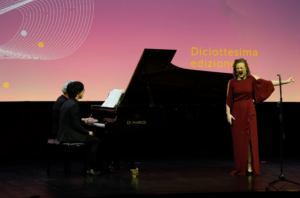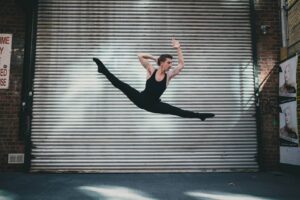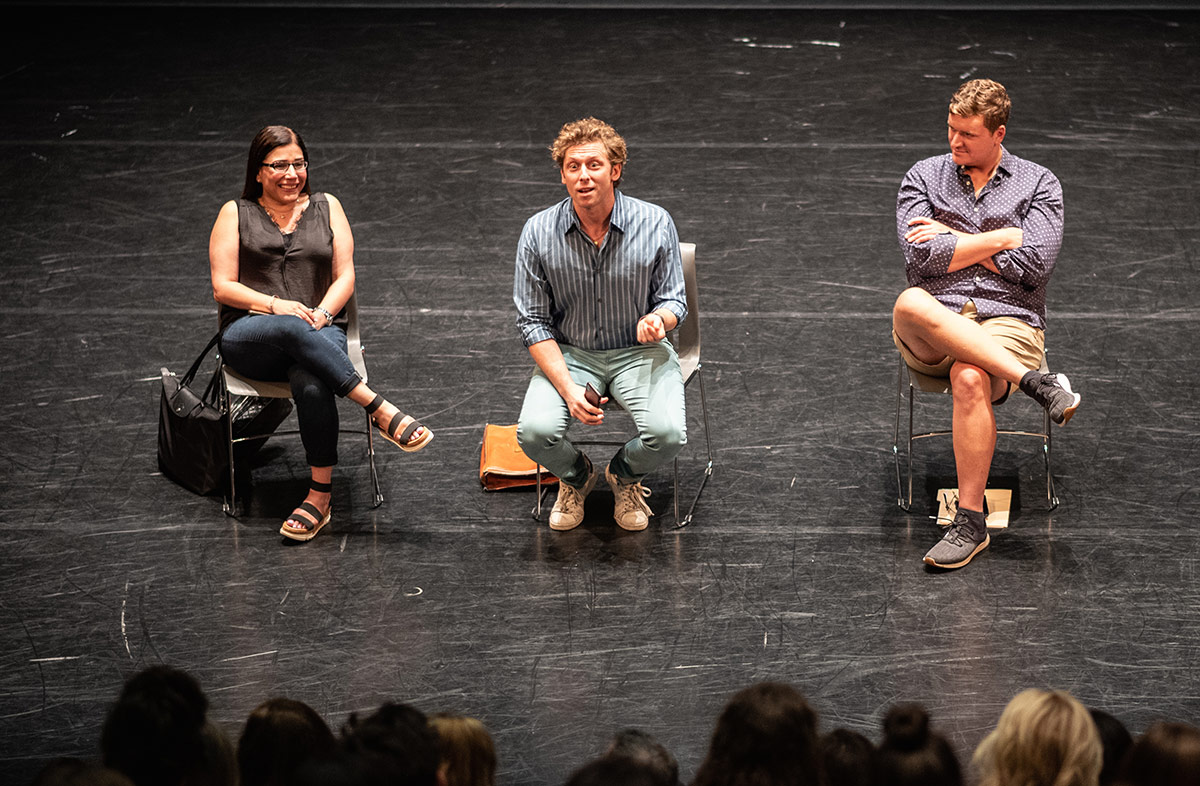If you’ve come to this blog post, you’re likely looking for tips on how to succeed in the College Audition Process for Theater/Musical Theater. Maybe you’ve heard about MTCA’s 20 year history of success and are hoping to get a bit of the secret sauce that has made our students successful. Maybe you’re already an MTCA student and you just can’t get enough of our great content. Either way, you’ve come to the right place. Here is one huge part of what we preach that differentiates our students from those working with other organizations, using their high school theater teachers, or going it alone. That secret is Process over Product.
This idea is something I talk about every year in this process, but it only gets more and more relevant as the schools demand more “product” from you all. Maybe that’s why I talked about it in the intro to my latest podcast episode (with Tony-Winner Lauren Patten), or as the “Closing Thought” in our last MTCA Webinar where we were talking prescreen preparation. But for those of you who haven’t already consumed every morsel of MTCA content you could get your hands on, and aren’t sure what I mean by this odd statement, I’ll explain it in detail in this blog post. The TLDR of what I’m advising you to do (and I urge you, please do continue to R) is to focus more on the process you are using to achieve a result, rather than focusing on the outcome itself.
Focus more on the process you are using to achieve a result, rather than focusing on the outcome itself.
This concept is broad and wide-ranging as a life skill, but is also particularly apt in the college audition world, both because it applies to your mental health in dealing with the ups and downs of this rollercoaster ride and because it is essential acting advice for you as you to continue to improve as a performer. In the sports world, this concept is already all-too-familiar – in basketball, an open shot attempt that bounces off the rim might be better than an off-balance three-pointer that happens to bank into the net off the backboard. In baseball, a hard line-drive hit into an opponent’s glove is generally preferable to a pop-up that happens to land in a lucky spot for a hit. And the same analogies would hold true in the business world, and many other walks of life. If I were to offer you 2-to-1 odds on the outcome of the flip of a coin, you are making a good decision to take the bet (assuming I wasn’t cheating!), even if you happen to lose 5 times in a row.
However, we need to go even a step deeper, especially as it relates to the Acting process. Even the concept of “line drive” is a result, right? It’s helpful to think of that positive result as more important than the outcome of “out” when the ball is caught, but both are really results of the approach a batter makes at the plate including the endless batting practice taken over years of their life, experiences with this particular pitcher, etc… and let’s fly past that idea. There is great value in focusing on the more relevant result that we have some control over versus the more arbitrary outcome over which we have precious little.
There is great value in focusing on the more relevant result that we have some control over versus the more arbitrary outcome over which we have precious little.
Consider in this analogy the first result being “an excellent audition” (over which we have some modicum of control) as the line drive that we hit, and the outcome of “not accepted to My Dream University” (over which we have almost no say) as the ball hitting the fielder’s glove. For the sake of your mental health in this process, it is essential to focus on how we can continually do OUR job and create the conditions for auditions that allow us to bring all of ourselves fully into the room.
For the sake of your mental health in this process, it is essential to focus on how we can continually do OUR job and create the conditions for auditions that allow us to bring all of ourselves fully into the room.
This involves auditions that are prepared well as a starting point (For example for Monologues: this would mean at a minimum that you have a) read the play, b) explored your given circumstances c) memorized your lines to a level that you can recite them while dodging wrenches if needed, and d) have explored the range and depth of vocal, physical and emotional choices that your piece might contain), but also that you are giving yourself adequate space to discover in the room (to be joyful, present, alive, messy, and vulnerable). You can control a large part of that process, although you won’t have complete control over it necessarily feeling like a “good” audition. But it is MUCH better on focusing on the line drive of a “good audition” than on what they say behind the table afterward, or what the portal says weeks later.
It is MUCH better to focus on the line drive of a “good audition” than on what they say behind the table afterward, or what the portal says weeks later.
This same idea of doing the work and releasing it will be so helpful to you in your professional career as well – some young actors early in their careers like to focus on getting callbacks rather than getting jobs, as a sign that the casting director is at least interested and might call them in again. I agree that this is a far preferable focus than whether you ultimately land the job, but would urge those actors to go even one step further in focusing on the process that they used to prepare for the audition, and how the audition went for them before any feedback from casting in the form of a callback or not. [A Note Here on Feedback: Of course, it is worth noting that at some point checking in with results is essential, as if what you think you’re doing to prepare yourself is continually leading to auditions that are turning out poor, you might need to adjust what your process. But focusing on those end results of “cast or not” is so subjective that in trying to learn too much from that you will as likely do more harm than good, given how separate those concepts are from your control. For high school students in the college process, it is very helpful to have expert guidance from coaches who know this process, who can deliver that holistic feedback about your process more incisively than the subjective yeses or noes that may come early on.]
For high school students in the college process, it is very helpful to have expert guidance from coaches who know this process, who can deliver that holistic feedback about your process more incisively than the subjective yeses or noes that may come early on.
And this all leads me back to the prescreen preparation process that many of you are currently in the midst of, as I type this in August. Because I know those finished prescreens are calling to you all, and they themselves are quite literally a product. They are a video product containing all of the hard work that many of you have spent many months preparing. Product is a tricky mistress. It is our default setting, as artists and humans, to focus on what the end product will be. The exact sound of that note, or the timing of that comedic delivery, the sharpness of that gesture, or the aching drama of the line-reading. I urge you, as much as humanly possible, to resist this calling for perfection of the product.
Resist this calling for perfection of the product.
There are two main reasons for this: 1) for the quality of work in the prescreens themselves, and 2) for the sake of this many-month-long process that will necessitate you continuing to play and discover within these pieces into the late winter. On the latter point, it is worth remembering that what the colleges are accepting are not the best performances they see, but the performers who they most want to train for the next four years.
What the colleges are accepting are not the best performances they see, but the performers who they most want to train for the next four years.
They are automatically accepting you as processes and not finished products, and their focus is always going to skew toward the living potential in an artist versus the most “perfect” rendition of a particular piece. But it’s the former part I want to focus more on. The quality of the work in the prescreens themselves, as I think this concept is not intuitive to those who have not studied this particular art form. What I’m saying is in continually working to polish, perfect, or solidify your material, you are almost certainly diminishing the potential of that work.
In continually working to polish, perfect, or solidify your material, you are almost certainly diminishing the potential of that work.
Read that sentence again if it doesn’t make intuitive sense to you – some of you may be asking, “but wouldn’t drilling and perfecting my material necessarily make it better”? And yes, I am saying that it will often, in fact, make it worse. To return to our sports analogy, there is an old Vince Lombardi saying “Practice doesn’t make perfect, only perfect practice does”. The way in which you rehearse and work on your material is incredibly important to whether it continues to deepen and expand or whether it begins to calcify and polish into something shiny but less alive. This doesn’t mean you can’t make choices that you know are repeatable, or that a work can’t move solidly in a direction toward a range of outcomes that are expected and becoming more similar. It is essential that there is always a range and not an absolute certainty. It is important that there is some level of freedom in the performance itself, or we risk something that feels overly perfected and therefore not truthfully lived in.
It is important that there is some level of freedom in the performance itself, or we risk something that feels overly perfected and therefore not truthfully lived in.
Often the work of a coach as we near the date of prescreen filming is to actually crack a piece open a bit, to allow some life and verisimilitude back in where we’ve overly closed up any potential imperfections. To modify our Lombardi quote from above for our artistic purposes, maybe we’d say “Rehearsal doesn’t always make improvements, only expert rehearsal does”.
Anyone who has ever done high school theater has likely encountered a version of this concept of playing for a result/product. It’s often called “second show let down” in the theater world. On opening night, full of adrenaline and the energy of uncertainty and possibility, we are striving to make all of these moments work with a frenetic energy of under-rehearsed glory. And often, with the listening ears of a new audience and our own strong instincts as storytellers, it goes way better than we could have dreamed (or feared!). Then, on that next night, flush with our success from opening, we try to recreate the result that worked last night (the same line-readings, emotional moments, comedic timing), and it ends up falling flat on its face. This is because we cannot recreate or replicate these kinds of indefinable emotional results successfully as actors. In doing so, we immediately start doing an impression of our previous selves, and the moments ring hollow. What we would ideally do (and it’s a lot easier said than done, even for professional actors), is try to recreate the circumstances and preparation for ourselves that led to those great results, and then trust that the new result, though slightly different, will be interesting and authentic in its own way.
Try to recreate the circumstances and preparation for ourselves that led to those great results, and then trust that the new result, though slightly different, will be interesting and authentic in its own way.
I often feel young actors disbelieve me when I say this as if I’m trying to rob them of this easy shortcut that is available to them. Aren’t adults always telling us to do things the harder way, the more “correct” way, when in actuality it would be so easy if I just copied my brother’s paper which got an A? Aside from the fact that would be cheating, I know for sure the paper is good. So wouldn’t it be obvious to watch a YouTube video of a girl who got into My Dream University and copy and paste exactly what she did? That wouldn’t even be cheating, right?! And yes, I am telling you there is nothing morally wrong with doing that, but it just won’t work. Recreating results from the outside-in with another person’s piece, as opposed to starting with yourself and working from the inside-out with your own justified intentions, will lead to a night-and-day difference in the performance.
Recreating results from the outside-in with another person’s piece, as opposed to starting with yourself and working from the inside-out with your own justified intentions, will lead to a night-and-day difference in the performance.
It’s not that it will necessarily be terrible, what you would do with your impression of someone else’s material, but that it would not be alive with your own artistry, and it is your alive artistry that is going to get you into these schools. [Sidenote on material: aside from the replication difficulty in the above example, it is also essential that you pick material that you are connected with personally and that tells the story of YOU, and not what you think they are looking for based on previously accepted students. But that is another blog post…]
And as crazy as it sounds with the recreation/replication process when we talk about your monologues and songs for college auditions, there is a significant risk of being trapped in replicating yourself!
With the recreation/replication process when we talk about your monologues and songs for college auditions, there is a significant risk of being trapped in replicating yourself!
Many of you will likely perform these pieces literally many hundreds of times over the course of this process, between coachings, solo rehearsals, masterclasses, and auditions. When something works in a piece, it is ever-so-tempting to try to glom onto that thing that worked and tuck it away to build on it. To copy yourself and your choices in order to paste them later, as opposed to noting and learning from the process you used to achieve that great result. I harp on this so much now, because so many of our students just successfully completed their Summer Faculty Masterclass Week with MTCA, where they got new exercises from great college faculty from all over the country. Many students had major break-throughs, and will want to carry that momentum forward into their prescreens. This is all to the good! But if you’ve been reading this blog so far, you’ll know that my advice will be to focus less on the specific line-reading, or even the specific exercise (though certainly great to tuck all of those exercises away for later use!), but see if you can focus on the conditions you were in, on the way you approached the material that day that allowed you to make that discovery, so you can continue to make those kinds of process-based discoveries into your prescreens and beyond into your live auditions.
See if you can focus on the conditions you were in, on the way you approached the material that day that allowed you to make that discovery, so you can continue to make those kinds of process-based discoveries into your prescreens and beyond into your live auditions.
I often say this at our Mock Auditions when we are debriefing the day, that we as performing artists are not like sculptors. We do not walk into an audition room and say, “Hey, here is this great statue I built painstakingly over the past 5 months, what do you think?” Instead, we walk into a room, unveil a blank piece of granite, and chisel away. The preparation we have spent months on is what enables us to smoothly and confidently work toward the piece of art that we are planning to make. Still, it is always made fresh and new each time, and always ever-so-slightly different in the way we create it, even if our approach is identical.
It is always made fresh and new each time, and always ever-so-slightly different in the way we create it, even if our approach is identical.
And it is for this reason, the fact that we cannot successfully replicate the “product” of our pieces, nor can we guarantee ourselves an outcome in any individual audition, that we must focus on our process. We focus on how we can continue to improve our approach to our material and our auditions themselves. If you’re not sure exactly what that means to you, please talk to your MTCA coaches who can help guide you in areas of improvement. But I promise you that this focus on process over product will set you up for success in this college audition process and well beyond into your career.
About the Author
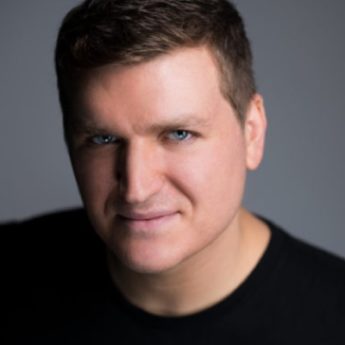
Charlie is a native Pittsburgher and a proud graduate of Carnegie Mellon University, where he studied Acting. As an actor, Charlie has performed for the NY Public Theatre’s “Shakespeare in the Park” (All’s Well That Ends Well, Measure for Measure), the Pearl Theatre Company (Richard II), the Hudson Valley Shakespeare Festival (King Lear, The Three Musketeers, Romeo and Juliet, Love’s Labour’s Lost), The Shakespeare Theatre of DC (Richard II, Henry V, As You Like It, Mrs. Warren’s Profession), Middlebury Actor’s Workshop (Cat on a Hot Tin Roof), The Arts Center of Coastal Carolina (The Unexpected Guest), and the Chautauqua Theatre Company (Much Ado About Nothing, Vaidehi, Ah, Wilderness!). Along with MTCA coaches Ryan Quinn and Katie Hartke, Charlie co-founded and is the Managing Director of Esperance Theater Company — a company that produces classical-based work here in NYC. With Esperance, Charlie has performed in 12th Night, Macbeth, Romeo and Juliet, and Breitwisch Farm. As a teacher, Charlie has been working with MTCA for over 17 years, where he is now a Director of the company along with Leo Ash Evens. Charlie also teaches Acting and College Audition Prep for the Performing Arts Project (TPAP), where he is on faculty each summer. He has also taught for Texas State University, the City University of New York, and the Hudson Valley Shakespeare Festival. As a Teacher and Director, he is able to do two of his favorite things in life: help students to find their authentic selves as artists, and help them find their best fit for their collegiate journey. Charlie also hosts the “Mapping The College Audition” podcast, where he continues that work, and helps demystify this daunting audition process. Charlie is also the proud father to a precocious toddler, partner to an amazing Tony-nominated + Grammy-winning Actress, and a humble Broadway Softball League champion.
